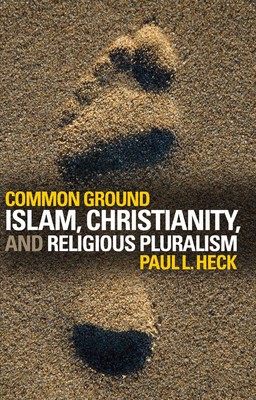
- We will send in 10–14 business days.
- Author: Paul L Heck
- Publisher: Georgetown University Press
- ISBN-10: 158901507X
- ISBN-13: 9781589015074
- Format: 14.1 x 21.5 x 1.8 cm, minkšti viršeliai
- Language: English
- SAVE -10% with code: EXTRA
Reviews
Description
Christian-Muslim interaction is a reality today in all corners of the globe, but while many celebrate the commonality of these traditions, significant differences remain. If these religions cannot be easily reconciled, can we perhaps view them through a single albeit refractive lens? This is the approach Paul Heck takes in Common Ground: To undertake a study of religious pluralism as a theological and social reality, and to approach the two religions in tandem as part of a broader discussion on the nature of the good society.
Rather than compare Christianity and Islam as two species of faith, religious pluralism offers a prism through which a society as a whole--secular and religious alike--can consider its core beliefs and values. Christianity and Islam are not merely identities that designate particular communities, but reference points that all can comprehend and discuss knowledgeably. This analysis of how Islam and Christianity understand theology, ethics, and politics--specifically democracy and human rights--offers a way for that discussion to move forward.
EXTRA 10 % discount with code: EXTRA
The promotion ends in 22d.16:03:55
The discount code is valid when purchasing from 10 €. Discounts do not stack.
- Author: Paul L Heck
- Publisher: Georgetown University Press
- ISBN-10: 158901507X
- ISBN-13: 9781589015074
- Format: 14.1 x 21.5 x 1.8 cm, minkšti viršeliai
- Language: English English
Christian-Muslim interaction is a reality today in all corners of the globe, but while many celebrate the commonality of these traditions, significant differences remain. If these religions cannot be easily reconciled, can we perhaps view them through a single albeit refractive lens? This is the approach Paul Heck takes in Common Ground: To undertake a study of religious pluralism as a theological and social reality, and to approach the two religions in tandem as part of a broader discussion on the nature of the good society.
Rather than compare Christianity and Islam as two species of faith, religious pluralism offers a prism through which a society as a whole--secular and religious alike--can consider its core beliefs and values. Christianity and Islam are not merely identities that designate particular communities, but reference points that all can comprehend and discuss knowledgeably. This analysis of how Islam and Christianity understand theology, ethics, and politics--specifically democracy and human rights--offers a way for that discussion to move forward.


Reviews